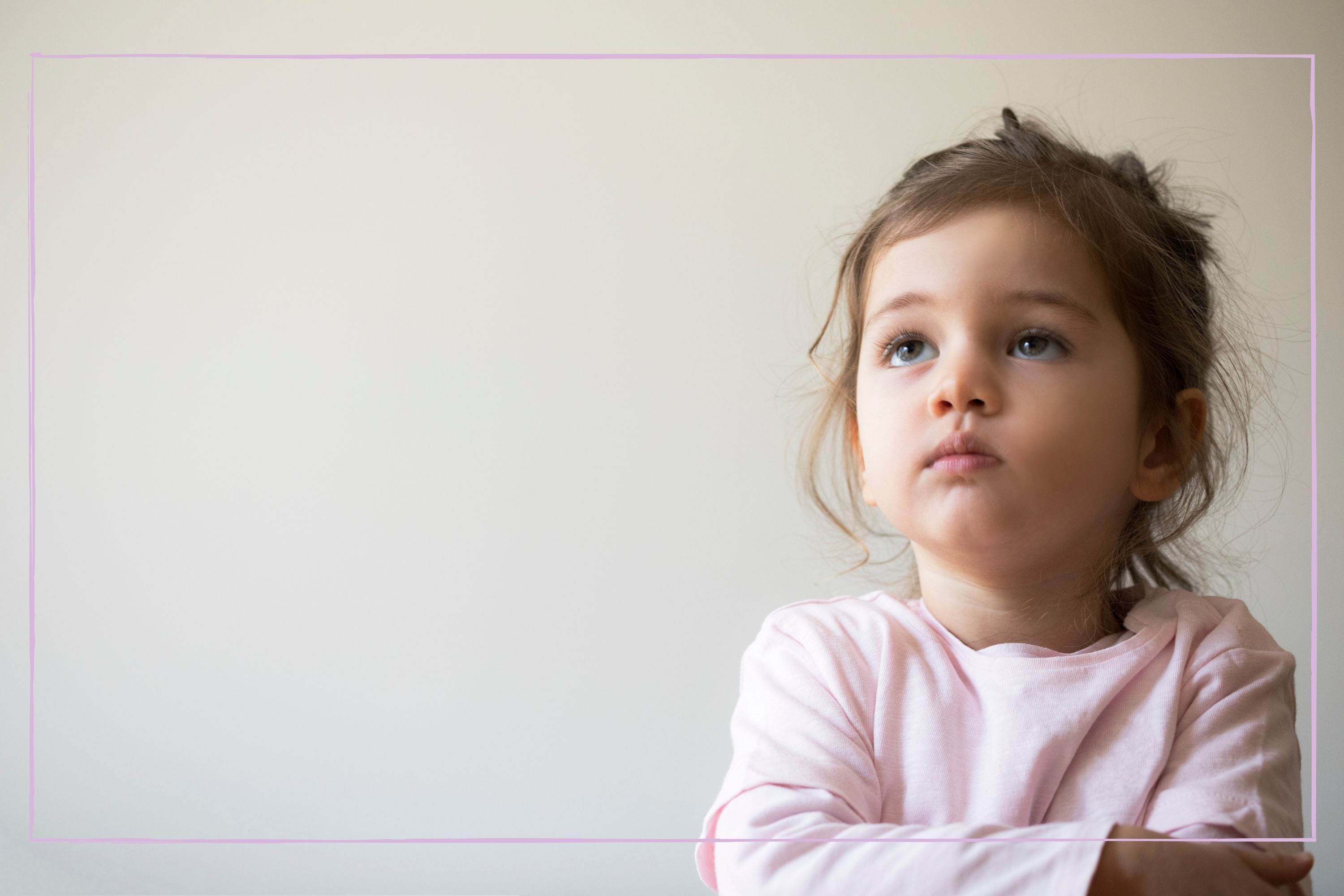Child psychotherapist reveals why toddlers hit their parents - and shares how to stop them
It doesn't matter how small they are - toddler punches hurt!

A child psychotherapist has revealed why toddlers are so keen to hit their parents and detailed the steps you can take to stop them from doing it.
Isn't is wonderful to watch your baby grow into their own person? It can be hard to have fun with a newborn, to know how to play with a newborn, but once they've hit those energetic toddler years, it's a non-stop party. You're suddenly surrounded by cardboard, pegs, and glitter, so much glitter, as you find new things to do with toddlers at home and weekends are filled with days out to try and get all that energy out of them.
But sometimes that energy just seems to go nowhere, no matter how much running around they do. And that's when toddlers decide, it seems, to get aggressive and start hitting their parents. It doesn't matter that they're still so small, those little fists pack a punch!
But why, when kids hit a certain age, do they turn to hitting? According to Rachel Melville-Thomas, a child psychotherapist and spokesperson for the Association of Child Psychotherapists , it's because, simply, they can. She explained to The Huffington Post that when toddlers hit a certain stage in their childhood development, they gain better motor control meaning they can get their fists to hit you - and once they realise it gets your attention, they're all for it.
As Rachel shares, toddler brains are gut driven. They use impulsive actions and are led by strong feelings. As such, they don't have a thought process between 'I want' and 'I get,' they simply need to get to the latter as quickly as possible. Therefore, toddlers often communicate by 'getting under your skin,' which we all know is a surefire way to draw attention.
So what can parents do to stop their toddlers hitting? Unfortunately, there's no one and done method and it takes time to teach a toddler the right way to get attention from the wrong. But showing them that hitting is not the answer and teaching them how to manage their anger in healthier ways in vital.
Straight after a toddler hits you, Rachel says to get down to their eye level, take hold of both their hands firmly and say, “no” or “ah-ah-ah!”. These sharp commands, rather than wordy reprimands, will make more immediate sense to the toddler. When you've got their attention, state the rule, “No hitting”.
Parenting advice, hot topics, best buys and family finance tips delivered straight to your inbox.
“Sometimes you will need to say ‘Ouch! That hurt me’ to show that there is pain caused," Rachel adds. "You might want to say ‘use your words not your hands’."
When they've stopped and calmed down, she says to try and guess what they want, what led them to want your attention. Were they trying to get a toy that's out of their reach? Did they want a cuddle? Are they hungry? When they've calmed down, reward that behaviour with giving them what they wanted.
“It often helps to use big facial expressions – frowning to echo their frustration, and a calm, even face to announce what isn’t acceptable," Rachel adds. "Later when they are calmer, you can empathise about how hard it is to wait, or share with others. Understanding their feelings is a great pathway to stopping the hitting."
To get the message through, it's important to repeat the same process every time a toddler turns to hitting. Eventually, they'll realise they can get what they want quicker by being nice and begin to understand that hitting is not the way forward.
It might be a struggle at first - toddler punches hurt and it never feels nice when your child wants to hit you. If you start to feel overwhelmed, Rachel recommends to make sure the toddler is safe before stepping away for a breather. There are plenty of tips to quickly calm down when parenting gets a bit too much or, if you've got some extra time, it's great to destress your body with exercise.
It can be hard to deal with children's big emotions. Whether it's a toddler hitting or a teenager screaming at you, it can be hard to know how to best support a child with ‘explosive’ emotions. But there's advice a plenty out there from how to use 'slow parenting’ to improve your connection with your kids to one child psychologist's phrase that will help every parent to help their child navigate their emotions.
Charlie Elizabeth Culverhouse is a news writer for Goodtoknow, specialising in family content. She began her freelance journalism career after graduating from Nottingham Trent University with an MA in Magazine Journalism, receiving an NCTJ diploma, and earning a First Class BA (Hons) in Journalism at the British and Irish Modern Music Institute. She has also worked with BBC Good Food and The Independent.